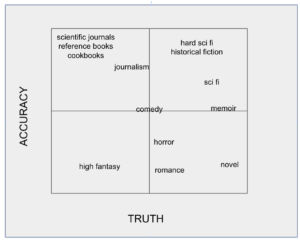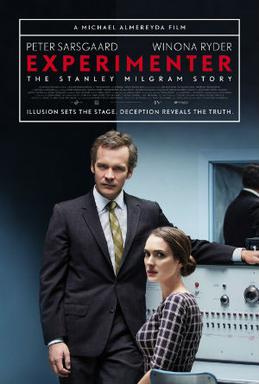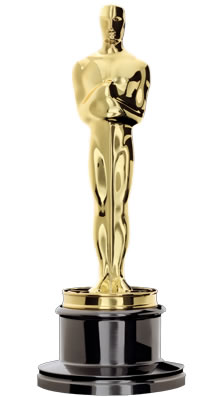 As a writing coach at the Agile Writer Workshop I meet a lot of people who want to write a memoir or an autobiography. They usually have a story to tell and it’s usually pretty personal. I always encourage them to write a memoir rather than an autobiography. Autobiographies are usually reserved for famous our infamous people. These new writers often have a harrowing story, or they’ve lived through a difficult time, and their friends tell them “you should write a book.”
As a writing coach at the Agile Writer Workshop I meet a lot of people who want to write a memoir or an autobiography. They usually have a story to tell and it’s usually pretty personal. I always encourage them to write a memoir rather than an autobiography. Autobiographies are usually reserved for famous our infamous people. These new writers often have a harrowing story, or they’ve lived through a difficult time, and their friends tell them “you should write a book.”
At the top of their list is to tell everything, exactly as it happened. What they don’t realize is that memoirs are never about accuracy, but about truth.
Memoirs have to be entertaining and they have to focus on just one element of the subject’s life. For example, one great memoir that came out of Agile Writers was about a woman who lived with alopecia (a debilitating loss of hair). As much as she wanted to tell every experience she had, just as it happened, some events had to be deleted or changed, and some individuals were combined into a single character. And, some conversations had to be interpolated.
This is done to streamline the story and make it flow better. A memoir, it turns out, is not an accurate retelling of events. Instead, it is a telling of the truth of the events.
Accuracy
There are times when one must tell the events exactly as they happened. In the case of relating the news, the writer must focus on accuracy. If you’re a journalist, for example, the accurate relating of events is a requirement of the job. A journalist who is exposed for telling a half-truth or worse, making up facts, is likely to lose their job.
You also need accuracy in reference books. If you’re writing a scientific paper and make up facts or get your data wrong, you ruin your credibility. Cookbooks, travel guides, dictionaries, encyclopedias, etc… all require accuracy.
In these cases accuracy trumps everything.
Truth
But how does truth differ from accuracy? I turns out that novels, movies, and memoirs have a lot in common. We can look to them for examples of how truth and accuracy differ.
When telling a news story, what is important is getting the facts straight. But often the ‘why’ of the story is less important. The backstory of the individuals, their hopes, dreams, and desires are secondary to getting to the facts.
But novels and memoirs are about people and relationships. The reader of a romance novel, for example, will not likely fact-check a scientific or historical fact. Or if they do, it’s not likely to affect their enjoyment of the story.
However, if the lead character of a novel is presented as beneficent and then kicks a dog – the writer has broken with the truth of the story. Either the hero of the story is good – or they’re not. (Of course it might be part of the story that our hero isn’t as good as we think – but that’s not the point here). This is truth. It breaks the truth of the story for our hero to be evil.
There are other truths. How does the world the novelist create compare to the experience of the reader? If, as the writer, you present a world where everyone is happy and gets what they need and life is ideal – your story may not ‘ring true.’
So, in the novel or memoir, accuracy doesn’t matter nearly as much as truth.
When You Need Both
But the world is not evenly and cleanly divided between truth and accuracy.
Historical Fiction
If you’re writing an historical novel, you have an obligation to get your historical facts right. In this case both accuracy and truth are important. Readers of historical fiction look for accuracy in the events of the story and will call out bad facts.
And still the truth of the story must come out. The characters and their relationships must convey the truth of the story and relate to the reader’s own world view. And, the inner consistency of the story must be intact – or the truth of the universe you’ve created will shatter.
I think a good case study in truth and accuracy is “Gone with the Wind.” In its heyday it was loved not only for the truth of the story, but it’s historical accuracy. The depiction of the antebellum South was presented as an accurate portrayal of life on the plantation. Today, we know that “Gone with the Wind” presented a view of Southern life that was biased – and so the accuracy has suffered over time.
Still, the truth of the story remains. The story of a woman who was left to run a plantation and survived against all odds. Likewise, final scene where her love interest tells her to go to hell is a strong truth.
Science Fiction
Likewise, hard science fiction must adhere to the known facts of current science. If you have a story about life on the moon, and you ignore the fact that the moon has one-sixth the gravity of Earth – you will be excoriated by your readers and your critics. And still, the truth of the story must come to the fore, or the reader will put the book down before the last page.
Despite its psychedelic nature, “2001, A Space Odyssey” is strongly rooted in scientific accuracy. The depiction of life in space still stands up after over 50 years. And when we watch this film we feel the strength of the truth of the story. The fight of a man against machine is a truth that people in the 1960s and even today, rings true.
Conclusions
If you’re writing a work of fiction, be it memoir or novel, you’re in the business of telling the truth, not necessarily being accurate. It’s acceptable, even expected that you will sacrifice accuracy to expose the truth of the story. Don’t be confined to the actual streets in a city, the exact timeline of your personal events, or the contents of every conversation you’ve had. Reach for the truth and your readers will be set free.

 the “shocker” asked the director to stop, they would be blithely asked to continue. The conclusions of the test were that people would do what they were told in the face of authority.
the “shocker” asked the director to stop, they would be blithely asked to continue. The conclusions of the test were that people would do what they were told in the face of authority.
 asked her in July to be one of its featured authors. “My name and photo went up on the website,” she said. Last Friday, however, that same bookseller called Watts to tell her that she was no longer slated to appear, as, after Googling her name, a member of the organizing committee had expressed concerns that she has also written erotica.”
asked her in July to be one of its featured authors. “My name and photo went up on the website,” she said. Last Friday, however, that same bookseller called Watts to tell her that she was no longer slated to appear, as, after Googling her name, a member of the organizing committee had expressed concerns that she has also written erotica.”




